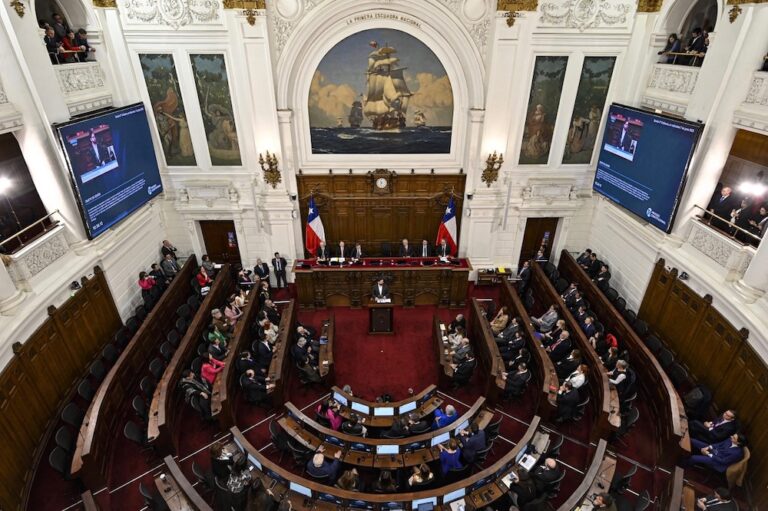(IPYS/IFEX) – On Friday 19 October 2001, the courts lifted the three-year ban on “The Black Book of Chilean Justice” (“El Libro Negro de la Justicia Chilena”). Judge Rubén Ballesteros of the Santiago Appeals Court issued the ruling. One week earlier, on Friday 12 October, the judge informed the defence of the book’s author, Alejandra […]
(IPYS/IFEX) – On Friday 19 October 2001, the courts lifted the three-year ban on “The Black Book of Chilean Justice” (“El Libro Negro de la Justicia Chilena”).
Judge Rubén Ballesteros of the Santiago Appeals Court issued the ruling. One week earlier, on Friday 12 October, the judge informed the defence of the book’s author, Alejandra Matus, that he had decided to lift all legal prohibitions on the book.
The resolution is based on the fact that a new press law was signed in May, effectively repealing Article 6b of the State Security Law (Ley de Seguridad Interior del Estado, LSIE). Under Article 6b, insulting and libeling high level officials had been considered a crime against public order.
In addition, Ballesteros annulled all charges against Bartolo Ortiz, general manager of the Planeta publishing company, and editor Carlos Orellana, who had been accused of being Matus’ accomplices in committing the crimes of defamation and libel.
Judge Ballesteros also temporarily stayed the still pending case for bribery and “insult” (“desacato”), also filed against Matus for violating Article 6b of the LSIE.
To ensure that the book will begin circulating once again, the presiding judge ordered the Department Investigating Economic Crimes (Brigada Investigadora de Delitos Economicos, Bridec) of the Investigative Police (Chile’s civil police) to return the more than 1,000 copies of “The Black Book⦔ to the Planeta publishing company. Once the necessary documentation and legal steps are completed, Matus’ book should be in bookstores sometime in the next three weeks.
In an interview published in “La Tercera” newspaper on Saturday 20 October, Ortiz, general manager of the Planeta publishing company, stated that “the problem appears to have been overcome” and added that he is not inclined to launch a case for damages against the state. Still, the previous week the publishing company’s executives had told the press that they would consider this possibility depending on the condition of the books that were to be returned to them.
According to Ortiz, “what happened has allowed for an opening within publishing companies, this is a step in support of freedom of expression and an end to censorship. And if the sales of the book go well, we are considering publishing a smaller soft-cover version. Our main interest is the people and we feel that it is our moral duty to again make the book available on the market.”
Matus told “La Tercera” that putting the book back on the market promptly was important, despite the fact that the book has been circulating in the black market throughout the time it was banned. “Nevertheless, for the sake of information distribution, it is important that the book can be openly consulted as a public document,” Matus told the Chilean morning newspaper.
The story of “The Black Book⦔ began two and a half years ago when in April 1999 a Supreme Court judge and the court’s former president filed a suit against Matus for violating Article 6b of the LSIE. Within twenty-four hours, the courts ordered the seizure of the book’s entire print run and the journalist was forced to flee the country to avoid imprisonment.
Recommended Action
Send letters of support and congratulations to Matus:
E-mail: Innsoftplus@mindspring.com
Send letters of congratulations to the Planeta-Chile publishing company:
Fax: +56 2 695 7260
Send appeals to Judge Ballesteros:
– asking him to definitively stay all outstanding cases for insult and libel against Matus
Appeals To
Rubén Ballesteros
Santiago Appeals Court Magistrate
Presiding judge on the Alejandra Matus case
Palacio de los Tribunales de Justicia
Plaza Montt Varas
Santiago, Chile
Tel: +56 2 696 5352
Please copy appeals to the source if possible.


